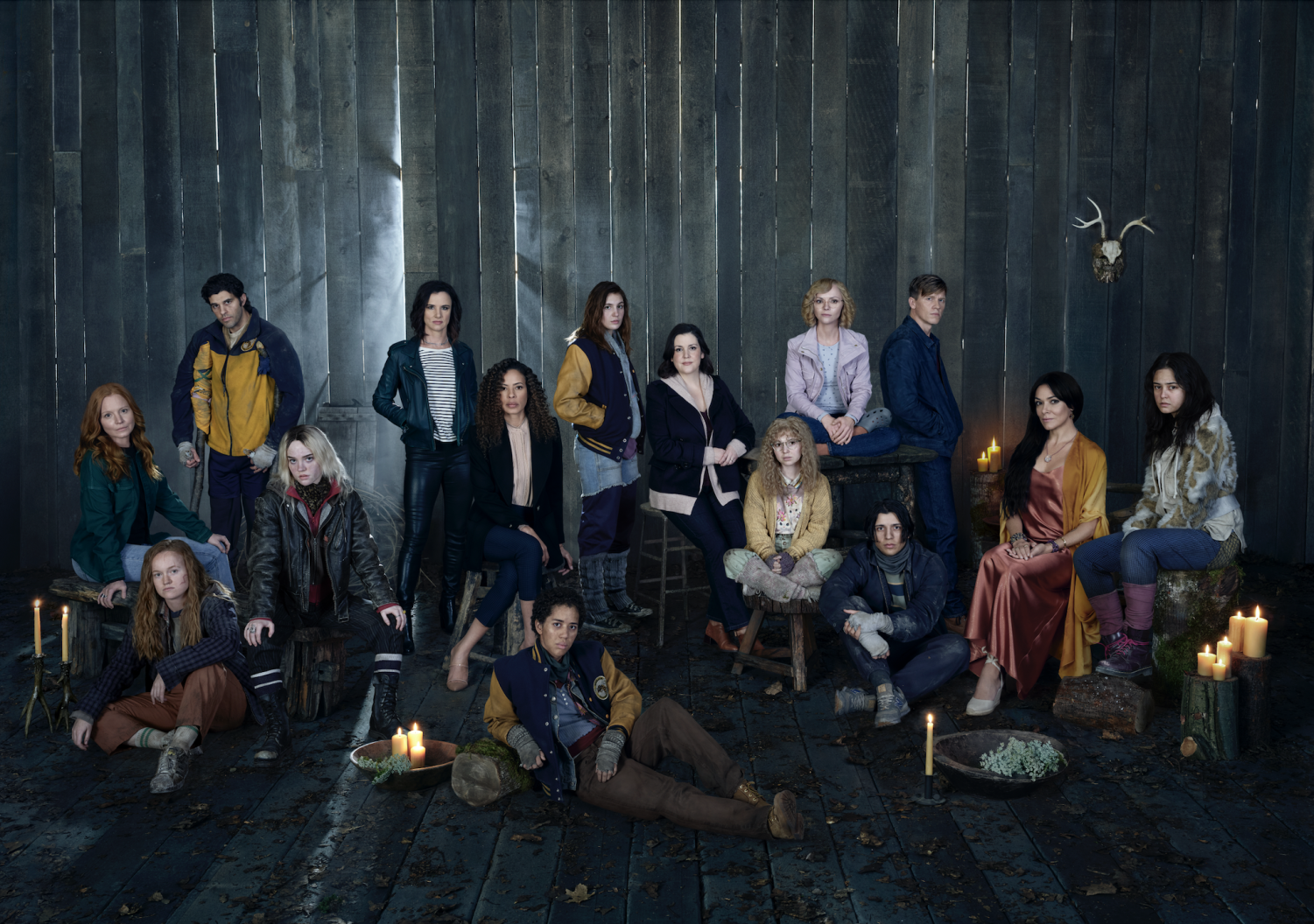‘Fascinating and terrifying’: Yellowjackets season two portrays the complexities of teenage trauma


The cast of “Yellowjackets.”
The trauma and volatility of teenage girlhood never truly leave us, a point which “Yellowjackets” drives home in its sophomore season.
Created by Ashley Lyle and Bart Nickerson and originally released in November 2021 on Showtime and Paramount+, “Yellowjackets” is a survival thriller about a high school girls’ soccer team whose plane crashes in the Canadian wilderness, leaving them stranded for 19 months. The show is told in two timelines, alternating between the teens post-crash in the wilderness in 1996 and the surviving adult members of the team 25 years later in 2021.
Season two, which began airing on Mar. 26, 2023, takes a darker turn, an impressive feat for a show whose pilot opens with a teenage girl being sadistically hunted through the forest and then immediately cannibalized in a cult-like, ritualistic manner.
Where season one was consistent from pilot to final episode and began on a lighter, pre-crash note, season two mirrors the chaos and darkness that the characters are living through — the highs are unbelievably high, and the lows are disappointingly low — much like the teenage experience, really.
Almost every stellar moment of the show occurs when the team is together — that is, when the teenage and adult actors are put into the same room in their two different timelines and given the space and material to act with and off of each other. The show has always expertly portrayed female dynamics, especially the volatile and ever-shifting relationships between women.
While “Yellowjackets” originally gained attention for the iconic 90s actresses casted to play the characters in the adult timeline, including Melanie Lynskey (adult Shauna) and Christina Ricci (adult Misty), season two has solidified the prowess and star power of the actors in the teen timeline.
Sophie Nelisse (young Shauna) and Sophie Thatcher (young Nat) were standouts, especially in the back half of the season. Nelisse delivers one of the most devastating and gut-wrenching performances in recent memory in episode six (“Qui”), and Thatcher is magnetic in a genuinely terrifying moment in episode eight (“It Chooses”).
Compared to the teen timeline, in which everything is rapidly ramping up for the collective — from the first instance of cannibalism to the first time the girls decide to hunt one another for food — the adult timeline takes far too long to come together.
The chemistry between the core adult cast is phenomenal, especially with this season’s additions of Lauren Ambrose as adult Van and Simone Kessell as adult Lottie, but they just weren’t given enough time to show it off — the six surviving women only come together at the end of episode six, which leaves only three episodes in which they all interact with each other.
Ultimately, the season was weakened by the pacing and focus on new characters who aren’t part of the original team. There are six main adult women, each with their own issues, which is more than enough for a compelling season of television.
Elijah Wood is entertaining as Citizen Detective and Misty’s partner in crime Walter Tattersall, but ultimately his character felt out of place and unnecessary. By the finale (“Storytelling”), it was clear that he was created to tie up loose ends that simply could not be fit into the storylines of the adult women.
In particular, adult Taissa (played by Tawny Cypress), who was a main facet of season one, felt sidelined for newer and less compelling characters.
Still, Cypress delivered in every moment she was given. In particular, her chemistry with Ambrose (adult Van) was palpable and tense. Ambrose was added this season as the adult counterpart to Liv Hewson’s sarcastic (and increasingly dark) teen Van, who is in a relationship with teen Taissa for the majority of their time in the wilderness.
Cypress and Ambrose perfectly portray the reunion of two characters who are clearly still in love after decades spent apart, though season three would do well to give the adult actresses more to work with outside of the relationship dynamic. In the finale, adult Van showed signs of regenerated belief in the cult rituals she vehemently supported in the wilderness, and it would have been compelling to see more of that before the final twenty minutes of the season.
Season two makes it abundantly obvious that the adults are, at least mentally, perpetually stuck in the wilderness. “Yellowjackets” is at its most compelling when exploring the ways that their trauma has bonded these women in intimate and grotesque ways.
Try as they might, these six women have not left behind the feral personas they took on as teenagers, and by the end of the season it’s possible they don’t fully want to say goodbye to their teenage selves, even though the brutality is no longer necessary to stay alive.
Two lines from the finale perfectly sum up everything the show has gotten right and everything it should focus on in coming seasons. The adults decide the only way to get rid of the “darkness” they brought back with them is to give it what it wants, which is one of them. Adult Shaunan (Lynskey) is chosen as the sacrifice, and in a plea for her life she says, “It’s not real, it was just us,” to which Lottie (Kessell) replies with a succinct “Does it matter?” The darkness has already consumed them, and the rest are just minor details.
It will be equal parts fascinating and terrifying to watch the teens and adults dive deeper into the looming darkness that has always existed within them in season three.
Recent Posts
Opinion | School should be in the summer
Although this may be controversial, I believe that from this data, it is evident that…
Weathering the storm: Pittsburgh teams have tackled some of the toughest environments
The end of the year in western Pennsylvania is always marked by two things —…
Notes From an Average Girl // Notes on Book Banning
In this edition of Notes From an Average Girl, senior staff writer Madeline Milchman writes…
To Be Honest // Yup, it is that damn phone
In this edition of To Be Honest, staff writer Evin Verbrugge writes about her phone…
Meaning at the Movies | Portraying Toxic ‘Adolescence’
In this edition of Meaning at the Movies, staff writer Lauren Deaton explores the mini-series…
Opinion | Climate change requires radical, immediate action
Contributing editor Emma Hannan talks about the effects of climate change and the actions cities…

